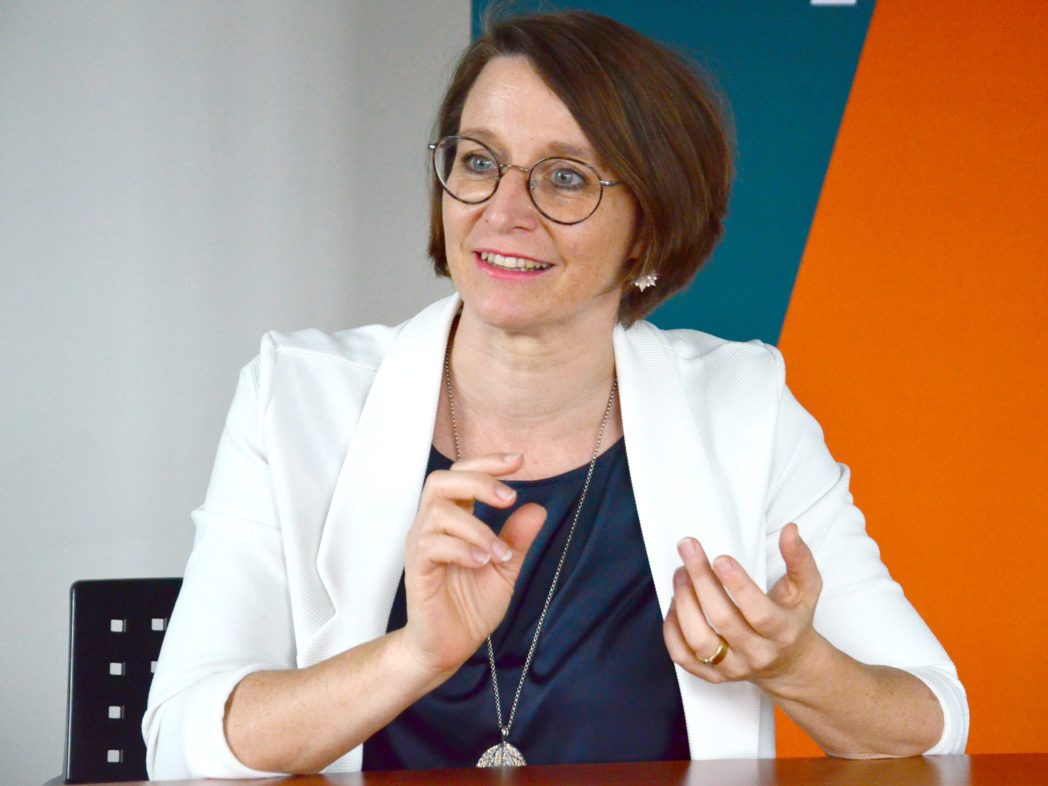
What is the Green Deal?
The EU has set the framework for a sustainable transformation of the economy with the Green Deal. The 17 Sustainable Development Goals (SDG targets) of the United Nations form the basis for this transformation. These goals are in the areas of environmental protection, poverty reduction and social justice. With the Green Deal, the EU aims to make the economy more sustainable not only in terms of environmental and climate protection but also in terms of social aspects. This transformation is in full swing, which means that companies must also take action.
What can companies expect with the Green Deal?
The goals of the Green Deal are transformed by EU member states into political and legal frameworks that drive the transformation of the economy. For example, the EU Supply Chain Act requires companies to comply with human rights and environmental standards throughout their entire value chain. Member states must implement the directive into national law by 2026. Although small and medium-sized enterprises (SMEs) are not directly affected by the law, they are indirectly affected as suppliers to larger, affected companies.
In addition, reporting requirements on sustainability aspects for companies will be expanded. This means that from 2025 onwards, companies with more than 250 employees must provide information on how they comply with the 17 SDG targets, such as how they combat corruption and bribery or respect human rights.
What is the EU Taxonomy Regulation?
The Taxonomy Regulation is also a central part of the Green Deal – parts of it have been in effect since January 1, 2022. It is part of the “Action Plan on Financing Sustainable Growth” and is intended to direct capital flows into ecologically sustainable economic activities. Climate and environmental protection becomes a criterion of risk management in the financial industry. This means that in the future, for example, sustainability criteria will play a stronger role in the awarding of loans to companies. Climate-damaging investments are thus to be made more difficult.
What do these regulations mean for SMEs?
These laws affect not only large corporations but also SMEs. This means that in the future, companies will no longer be able to act sustainably only out of intrinsic motivation. It is not a matter of wanting or shouldering, but of having to. And the sooner companies take steps to become more sustainable, the better. Because in the long run, this can lead to competitive advantages. Companies are then prepared for the sustainable transformation of the economy. They are more attractive to customers and suppliers who are transforming their supply chains sustainably. And they can receive financial support for their investments in sustainable projects.
There are many measures that can be taken in terms of sustainability. How can companies find the right ones for them?
I recommend: just start! There are many possibilities: for example, saving energy through heat recovery or renovation of the company building, switching to green electricity, switching to regional, sustainable suppliers or products. There is a lot of potential where you can start. The WKO offers checklists on the topics of energy, mobility, devices and production processes. The checks provide good tips on what measures companies can take.
Are there programs that support SMEs?
There are support services available from various sources. For example, with the help of experts from the Enterprise Europe Network (EEN), SMEs can have their previous sustainability activities analyzed for free. Based on this analysis, the EEN can provide recommendations to companies on what goals to pursue and what measures to take. We are a partner of the EEN and can also assist with funding applications and finding cooperation partners.
The Austrian Control Bank (ÖKG) offers a free online tool that evaluates the sustainability activities of companies. Banks use these evaluations as decision-making aids for lending. Banks are rated based on how many “green” loans they grant – this is part of the EU Taxonomy Regulation.
How can companies finance such measures?
There are now numerous funding opportunities from the federal government and the state of Salzburg, not only in the field of environmental protection, but also for social measures or for research and development in the field of sustainable innovations.
However, the Climate and Transformation Offensive is particularly noteworthy. To make the Green Deal a reality, initial funding is being distributed here. For example, companies receive 5,000 euros per employee for digital and sustainable training. That’s a huge amount! Research will also be funded with 55 million euros in 2023.
Where can companies turn for help?
They can contact us to discuss their plans. We are the first point of contact and have a good overview of the contact persons if they need advice or experts who can help them implement sustainability projects. We also provide advice on funding and assist with applications.
Companies can also contact the Environmental Law Department of the Salzburg Chamber of Commerce or the Environmental Service Salzburg (uss) directly. The uss provides advice on energy, mobility, waste, resources, and the environment.
Related Links
This might also interest you
6. March 2025
salz21: Necessary Steps for the Future
On March 5, 2025, salz21 | Home of Innovation once again provided a platform for future topics, innovations, and interdisciplinary exchange. More than 1,000 visitors took the opportunity to learn about current developments and discuss perspectives for tomorrow. Three topics were particularly dominant: climate protection, artificial intelligence, and a strong Europe.
25. September 2024
Green Deal: How Sustainable Business Development Can Look
The EU aims to create political and legal frameworks through the Green Deal to transform both the economy and society in a sustainable way. The Pinzgau-based company Design Composite demonstrates how this can be implemented.
15. August 2024
Sunbeam Yachts: Where Craftsmanship Meets Digitalization
Sunbeam Yachts has been building exclusive sailing yachts at Mattsee for generations. The production is done by hand, with some processes now digitally supported.
12. August 2024
SBS: One Software for Many Self-Service Devices
As a leading provider of banking software in Salzburg, SBS is now exploring new markets. The company remains true to its core segment by offering manufacturer-neutral software for self-service devices in additional sectors.
